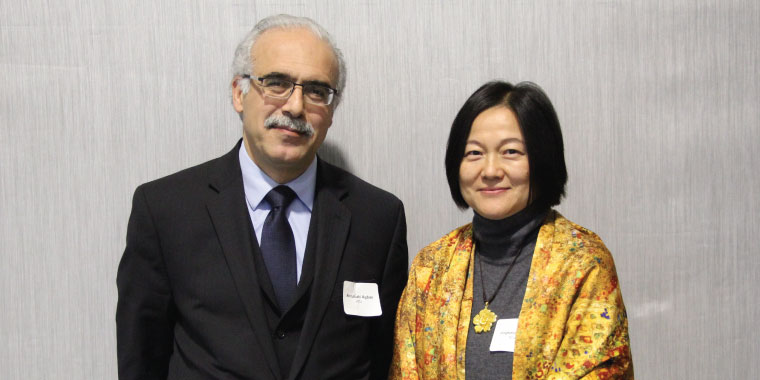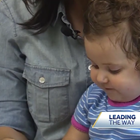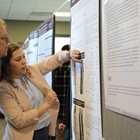KCU’s Jingsong Zhou, PhD, professor of physiology and Abdulbaki Agbas, PhD, associate professor of biochemistry were among 14 researchers who presented during the recent Symposium on Musculoskeletal and Neuromuscular Diseases hosted by the Kansas City Musculoskeletal Diseases Consortium (KCMD) in collaboration with The Heartland Institute for Clinical and Translational Research.
The symposium brought together some of the finest minds in medical research from KCU, University of Missouri-Kansas City (UMKC) and Kansas University Medical Center (KUMC) to foster an awareness of research activities, promote research collaboration, and develop inter-institutional teams to compete for extramural funding to advance ongoing research.
Both KCU researchers have been involved with KCMD since its formation and are conducting important research on Amyotrophic Lateral Sclerosis (ALS) or Lou Gehrig’s Disease.
Zhou’s team of researchers from KCU, UMKC and KUMC are seeking greater understanding of ALS through their investigation into possible crosstalk between muscle and bone.
“Due to the nature of the rapid and severe neuromuscular symptoms, a majority of studies on ALS have focused on neurodegeneration”, said Zhou. “Very few studies have explored muscle-bone crosstalk in ALS. Understanding the functional crosstalk between muscle and bone during the progression of ALS will help to identify potential new therapeutic targets for treatment and/or improving the quality and length of life for ALS patients.”
Agbas’ team, comprised of researchers from KCU and KUMC, are approaching research from a different angle, focusing their investigation on ALS blood-based biomarkers.
“Currently there is no definitive single test to provide an early diagnosis of ALS. Diagnosis is primarily based on observed symptoms and clinical signs,” Agbas explained. “While there is no cure, the identification of blood-based biomarkers would help identify the early presence of the disease or rate of progression in individuals with ALS and the effectiveness of therapeutic intervention when it becomes available.”
Since its inception in 2015, KCMD has focused on building upon the individual strengths of each institution in basic and clinical research to improve patient outcomes, and has been successful in developing grants to advance research funding for numerous projects. During the symposium, KCMD announced grants for 2017 that will support the development of additional research proposals to external agencies for future funding.




(0) Comments